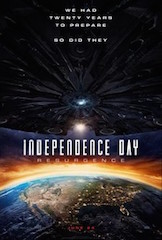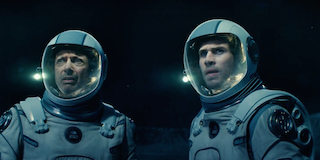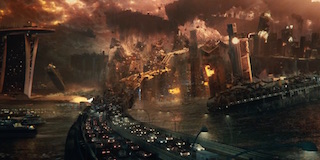 A BBC news story from 2012 details the tragic fallout of a war-torn country, ravaged by bombings, political infighting, international conflict, ethnic violence, assassinations, and terrorism. 800,000 to a million children in Iraq have grown up with no parents and their peer group is considered a “generation of orphans.” Of course, this sad, contemporary example is put one point on a history of war stretching back to the Garden. Throughout human history, brothers and sisters have dealt with the crippling results of all-consuming war that has left families, cities, and countries devastated and entire generations with neither father nor mother.
A BBC news story from 2012 details the tragic fallout of a war-torn country, ravaged by bombings, political infighting, international conflict, ethnic violence, assassinations, and terrorism. 800,000 to a million children in Iraq have grown up with no parents and their peer group is considered a “generation of orphans.” Of course, this sad, contemporary example is put one point on a history of war stretching back to the Garden. Throughout human history, brothers and sisters have dealt with the crippling results of all-consuming war that has left families, cities, and countries devastated and entire generations with neither father nor mother.
Roland Emmerich’s sequel to the massively successful 1996 blockbuster, Independence Day: Resurgence posits such a future for not only a country, but the entire planet. Set twenty years after the events of the original movie, it opens detailing the aftermath of the war against the alien invaders. We’re told the world has come together, put aside their hostile differences, and turned their attention to stealing the former alien invaders technology to create a massive armed force to stop their inevitable return. We meet old faces and new faces. David Levinson (Jeff Goldblum), President Whitemore (Bill Pullman), David’s father Julius (Judd Hirsch), and somehow, despite an on-screen declaration of his death in the previous movie, Dr. Brackish Okun (Brent Spiner). The biggest absence is Will Smith as Captain Steven Hiller and condolences are given to his son, Dylan (Jessie T. Usher), who has followed in his father’s footsteps.
Dylan joins another child of the original movie, Patricia Whitemore, played by rising young star Maika Monroe. Patricia, a pilot like Dylan and her father, is engaged to Liam Hemsworth’s Jake Morrison, another pilot, who is driving a construction tug on the Moon. All of their stories collide when the aliens distress signal, sent twenty years ago when they were defeated, is answered by a bigger and far greater threat. This time, they have brought the biggest of the motherships and it takes up a quarter of the Eath’s surface.
Recalling the previous movie, it is up to the old and new heroes to hatch a plan, once again, to destroy the alien invaders. Again, recalling the original, there is great faith placed in humanity’s ability to triumph over insurmountable odds and conquer an impending apocalypse. If Emmerich was trying to recall the glory days of late 90’s disaster movies, it seems his memory has faded ever so slightly. Gone is much of the American patriotism and it is replaced by a broader, collective human spirit echoing Bill Pullman’s iconic speech from the first movie. There is no Randy Quaid character to hold up the working class, post-cold War average Joe American who will kill foreign invaders and keep our country great. Will Smith’s mountain of charisma casts a long shadow over a score of actors who elevate the movie as much as the desert flats that surround Area 51. All the aspects of the 1996 film have been replaced with a very tepid level of enthusiasm for survival surrounded by phoned-in performances, bad CGI, and a miserable screenplay.
Motivations are haphazardly explained and the movie makes few efforts to connect us to its swollen mass of characters or connect our world to theirs. To my recollection, there is no mention of God or a deity of any kind. If He does exist within this world He has no active agency nor stakes in the fate of humanity. Yet the tragedy of 2 to 3 billion people dying in the first attack—this figure was stated by Emmerich—has the poignant opportunity to connect us to the heart of Jesus Christ for those with no home or family. The Order of Salvation itself includes adoption in describing God’s work to save human souls and countless biblical passages refer to God as a loving Father or a mother hen protecting her chicks.
There would be a deep, godly sorrow in the loss of a third to half the world’s population. It begs the question: could there have been a better movie? If you continued the post-destruction events of Independence Day, you can imagine countless people lost their lives and countless others lost mothers, fathers, sisters, brothers, and were left completely alone, just as it has been for the aforementioned Iraqi children and other war-torn generations. For a fleeting moment in the movie, this very scenario is mentioned as two characters reflect on only having each other. In another instance, a character mentions not having a family while the other one still does. Sadly, these little snippets are never highlighted in a meaningful way. 
What would it be like for an entire generation to grow up as orphans due to a global catastrophe like an alien invasion? What kind of social divisions would arise? What sort of interpersonal conflicts? Would it lead to finger pointing, power grabbing, and new tribes of people being formed? Is there room for God in a world devastated by alien invaders? Could Emmerich have possibly halved the CGI destruction in favor of a deeper look at these aspects? It would have made a greater impact than introducing random new characters we don’t care about or have no purpose in the narrative. A third and fourth movie would make a lot more sense if the conflict had a human grounding or at least an interesting tension of how different groups of differently-effected humans handle a new galactic threat.
There was a much, much better movie lying hidden somewhere in the rubble. It is too bad this movie cared more about CGI destruction and setting up for another movie than to actually dig deeper to find the better story.

